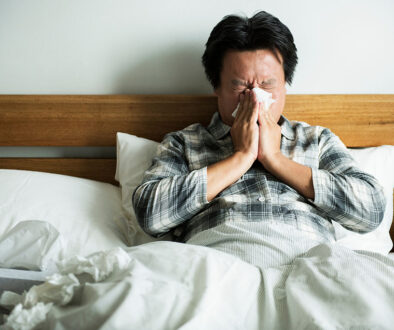Should You Have Allergy Testing? Ask Yourself These Three Questions
When you live with allergies, the entire scope of your world changes. You no longer go to outdoor events and weekend trips without making sure that you’ve packed your allergy medicine to help alleviate your sniffing, sneezing and other symptoms. While medication may give you some relief, if you are looking for a more permanent solution, it may be time to have an allergy test.
While pollen, mold and pet dander are typically considered the “usual suspects,” in truth, there are hundreds of possible causes for your allergies, and getting the relief you need means getting to the heart of what’s bothering you. In cases like this, an allergy test is your best course of action. This will help us determine not only the specific allergens that are causing your problems, but it gives us a framework to start immunotherapy, a long-term solution to chronic allergies.
Should you have an allergy test? We’ve prepared a list of questions to help you find answers.
1. How often do my allergies bother me?
If your allergy symptoms last longer than two weeks and keep returning, you should consider allergy testing. Typically, acute sinus and allergy problems last no more than four weeks, while chronic ones can last significantly longer— eight-to-twelve weeks. Chronic allergies linger for years.
2. Does over-the-counter medication alleviate all your symptoms?
Many can simply take an OTC medication such as Benadryl or Zyrtec and be fine throughout allergy season. For others, OTC and prescription medications aren’t effective. Even if they do relieve your symptoms, you will have to take the medications for several years in order to keep the allergies from returning. In many cases, it’s more convenient, and economical, to undergo immunotherapy (allergy shots) to permanently alleviate your symptoms…and an allergy test is the first step in that process.
3. Do your allergies still bother you even though you’re avoiding the suspected allergens?
It’s not unusual for patients to come to us seeking treatment for pet dander allergies only to discover that “Fido” is not the problem! Many assume that they are allergic to pollen or mold when, in actuality, it may be a completely different substance causing the problem. It’s very possible that the things you’re trying to avoid aren’t the source of your problems. An allergy test helps us isolate the core problem and prescribe the appropriate treatment.
Who shouldn’t have allergy tests?
While these skin tests are generally safe, we will need to evaluate your individual case before administering them. An allergy skin test may not be the right choice if:
• You’ve ever had a severe, life-threatening allergic reaction
• You’re currently taking medications that are likely to interfere with test results
• You have severe eczema or psoriasis
What is immunotherapy, and how can it help me?
Immunotherapy, which is often referred to as “allergy shots,” desensitizes your body by exposing it to small, diluted versions of the allergens that are causing problems. Through the course of treatment, your body adjusts and no longer reacts to the allergen. This means, you’ll be able to participate in the activities you enjoy without having to take allergy medicine every day.
Raleigh Medical Group’s Complete Guide to Allergy and Sinus Treatment
As internal medicine specialists, we don’t merely treat a set of symptoms; we look at the entire patient, evaluating all your needs ranging from nutritional choices to annual wellness exams. This holistic approach is one of the reasons we’re perfectly suited to provide treatment for allergies and sinus problems.
We have an extensive library of articles that cover every aspect of seasonal allergies along with useful information on how to avoid them and what to do if you suffer from chronic problems. We invite you to take a closer look at the following blog posts:
What is Immunotherapy for Allergy Treatment?
5 Ways Allergies Slow You Down
The 3 Most Common North Carolina Allergies: How to Avoid Them
3 Solutions for Common Sinus Problems
5 Ways Allergy Sufferers Can Sleep Soundly
4 Ways to Make Your Home a No-Allergy Zone




